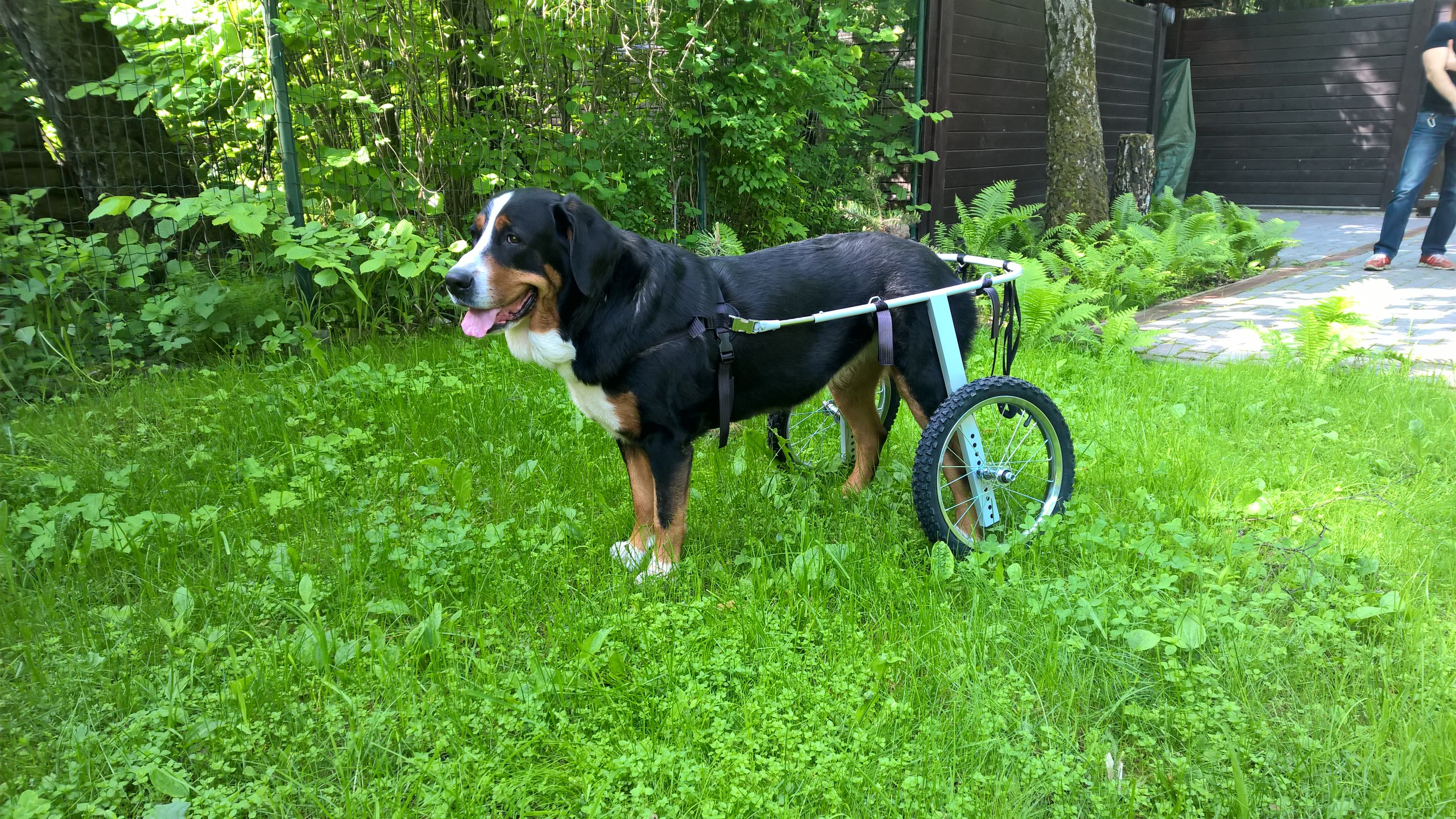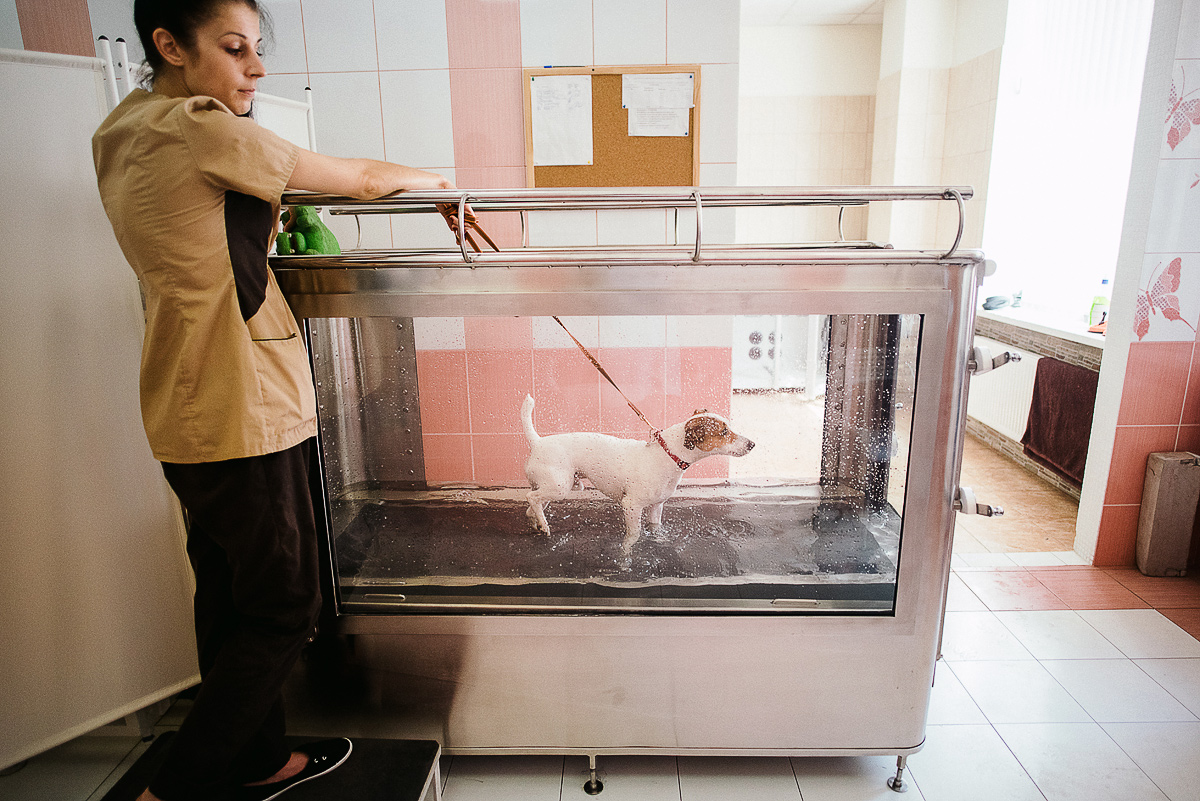
"Producing prostheses for animals is no different than producing prosthesis for humans," says Elena Kitaeva, manager of the animal orthopedics department at the Yekaterinburg Prosthetic-Orthopedic Enterprise.
Press photoLast year a prosthesis factory in Yekaterinburg specializing in orthopedic products for humans launched a line for animals. The first client was Masyanya, a dog who had lost its front paw.
Masyanya's owner had visited many clinics throughout Russia but no one could help. When he finally appealed to specialists at the Yekaterinburg factory, they had an idea -- produce prostheses for disabled dogs.
"Producing prostheses for animals is no different than producing prosthesis for humans," said Elena Kitaeva, manager of the animal orthopedics department at the Yekaterinburg Prosthetic-Orthopedic Enterprise.
"They are produced using the same materials and are custom-made for the patient. The only difference is that when trying on a prosthesis a person can say where he or she feels discomfort, while an animal can't. That's why it's more challenging with animals than people," said Kitaeva.
The company has a special area with a separate entrance for dogs and their owners. The dogs' casts are removed, the prostheses are tried on and adjusted, and the owner receives consultation.
There are many requests for such prostheses, and not only from Russia but also from neighboring countries. Unfortunately, not all animals can receive help. The prostheses are made only if the animal is healthy, at least half the limb remains and the owner can bring the animal to Yekaterinburg.
The factory also produces other items. For example, a brace that supports the dog's neck and head in the right position after injuries and illnesses is only made here for the Russian market.
Wheelchairs give mobility to dogs whose hind legs do not function. Currently, only private specialists and several companies make such wheelchairs in Russia. Moscow's Animal Mobile, however, makes not only two-wheel chairs for the hind legs, but also four-wheel chairs in case all of the animal's legs do not function.
"Our wheelchairs were developed by engineers from the old Soviet school who could build a spaceship out of nothing," explained Gulnara Odjkha, director of Animal Mobile.
“These wheelchairs were designed together with veterinary surgeons and were made from steel, unlike most Russian and foreign equivalents. This renders the wheelchair light and sturdy," said Odjkha.
Wheelchairs for dogs help the pet lead a normal lifestyle — walk, stand and run autonomously. Some specialists say that the preservation of mobility helps the dogs fully recover and in some cases they begin walking by themselves.
"The dog became lively, cheerful and strong, and his hind paws preserved some mobility. The dog even began jerking its legs in sleep!" said a satisfied dog owner.
One of the newest Russian rehabilitation developments is a water treadmill for dogs from the Fit4Pet company. This helps dogs recover their mobility after surgeries, as well as drop weight and increase their endurance.
"The developers worked with leading rehabilitation veterinarians and sports doctors who have experience with European equipment," said Fit4Pet's executive director, Alexei Mokhnatkin. "We took into consideration doctor recommendations and created solutions that existing equipment did not provide."
The Russian device is marked by increased comfort and security for the patient. Water enters the treadmill significantly faster than its competitors and almost silently in order not to cause the dog any extra stress.
 One of the newest Russian rehabilitation developments is a water treadmill for dogs from the Fit4Pet company. This helps dogs recover their mobility after surgeries, as well as drop weight and increase their endurance. Source: Press photo
One of the newest Russian rehabilitation developments is a water treadmill for dogs from the Fit4Pet company. This helps dogs recover their mobility after surgeries, as well as drop weight and increase their endurance. Source: Press photo
The doctor or instructor may work near the animal inside the tank, something that is particularly important for heavier patients. The water goes through several purification stages because, as Mokhnatkin said, animal owners demand the best quality of water.
Usually veterinary clinics and companies that work with sports dogs order large and complex equipment. However, Russian breeders and farms are also beginning to use water treadmills.
All rights reserved by Rossiyskaya Gazeta.
Subscribe
to our newsletter!
Get the week's best stories straight to your inbox